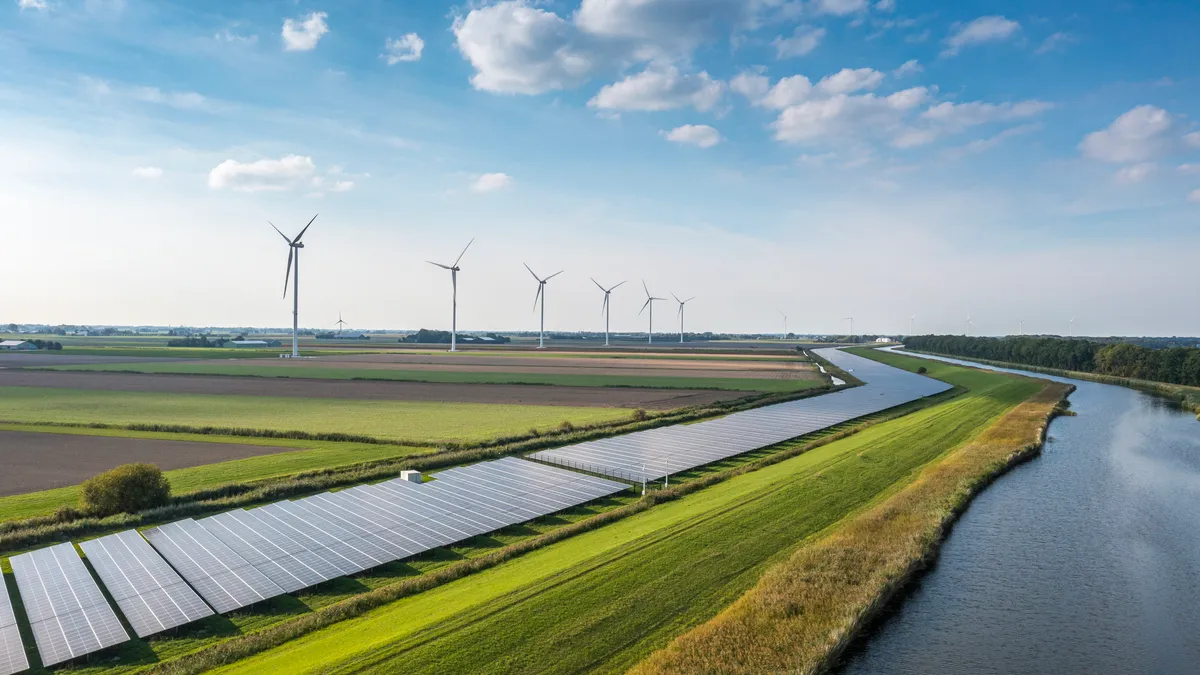A second term of Donald Trump’s presidency will be a “setback” for climate protection and the clean energy transition, but advocates also say they expect momentum to continue, particularly at the local level.
“There is no denying that another Trump presidency will stall national efforts to tackle the climate crisis and protect the environment, but most U.S. state, local, and private sector leaders are committed to charging ahead,” Dan Lashof, U.S. director of the World Resources Institute, said in a statement.
Trump will be the second president to serve non-consecutive terms and has vowed to support the U.S. oil and gas sectors, overturn rules limiting power plant emissions and roll back government support for electric vehicles.
Energy issues were “embedded in the dynamics” of the election and may have wound up helping Republicans, said Liam Donovan, senior political strategist at the law firm Bracewell.
“Energy was messaged by Republicans as ‘your gas is costing you more’ ... and I think there’s a recognition by the Democratic side about the danger of putting climate front and center,” Donovan said. He noted Vice President Kamala Harris declaring she would not ban fracking as an example of energy issues putting Democrats on the “defensive.”
Support for American energy production
The American Energy Alliance congratulated Trump, saying the group looks forward to working with him to “unwind the Biden-Harris administration’s regulatory onslaught on American energy producers.”
AEA is the advocacy arm of the Institute for Energy Research, which was a member of the 2025 Presidential Transition Project advisory coalition organized by the Heritage Foundation. Project 2025 sketched a potential roadmap for a second Trump administration, though the former and future President’s campaign has sought to distance itself from the plan.
“Throughout his campaign, President Trump expressed his unabashed support for American energy,” IER and AEA President Thomas Pyle said in a statement. “He promised to embrace domestic oil and gas production, lower energy and electricity prices, and undo the inflationary Biden-Harris Green New Deal policies, especially the wasteful taxpayer funded subsidies in the so-called Inflation Reduction Act.”
The clean power transition can help to grow the economy under the Trump administration, some groups said.
The American Clean Power Association said it looked forward to working with the Trump-Vance administration to “unleash American-made energy, deliver reliable power to the grid, grow the economy, and enhance our national security.”
“Our industry grew by double digits each year under the first Trump Administration and has accelerated this rate of progress since,” ACP CEO Jason Grumet said. “Private sector clean energy investment is bringing jobs and economic opportunity to small towns and rural communities across the nation, while hundreds of new factories have come online in states that have seen far too many good jobs move overseas.”
Shares of renewable energy companies traded down on election day, Nov. 5. Shares of Sunrun, Sunnova and FirstSolar fell 27%, 43% and 12.5%, respectively, around 11:30 a.m. EST that day.
The National Electrical Manufacturers Association said in a statement that the group looks forward to working with the Trump administration and the next Congress to support domestic manufacturing of grid components. And it is focused on working to protect “key energy and business provisions, including those included in President Trump’s Tax Cuts and Jobs Act that have helped grow our economy, increase our nation’s electrical manufacturing capacity, and strengthen its workforce.”
“Now is a transformative time for our electrical infrastructure, and NEMA and our members will be laser focused on working alongside the Trump Administration to modernize our grid, develop resilient domestic supply chains, and create good paying American jobs for essential electrical workers,” NEMA President and CEO Debra Phillips said in a statement.
‘An assault on climate’
Environmental advocates were on the defensive. “The nation is in uncharted waters,” said Manish Bapna, president of the Natural Resources Defense Council.
“If [Trump] tries to purge the professional civil service we depend on for sound governance, we’ll stand by those who face political attack,” Bapna said in a statement. “If he tries to roll back urgently needed climate gains, or follow his radical Project 2025 road map to environmental ruin, we’ll stand up for the environment and public health — in the court of public opinion and in our courts of law.”
The Union of Concerned Scientists said a second Trump administration “threatens an assault on climate, energy, and justice priorities.” The group has “deep concerns about what will come next,” and expects fossil fuel “giveaways,” an attack on science-informed standards and regulatory rollbacks “such as standards limiting climate and health-harming pollution from coal- and gas-fired power plants and fossil fuel extraction and transport.”
“We will work to defend against rollbacks to public health safeguards and climate policies that are grounded in science and delivering tremendous benefits to people,” Chitra Kumar, managing director of UCS’ climate and energy program, wrote in a post-election blog post.
Increased exports could send gas prices higher
With Republicans in charge of the Senate and the White House, and potentially the House, the Trump administration will try and move quickly to deregulate liquefied natural gas exports, Tyson Slocum, director of Public Citizen's Energy Program, said in an email.
“This will have profound impacts on domestic energy markets, as removing a public interest balanced consideration will prioritize gas exports at the expense of access to domestic supply. We'll see sharply higher domestic natural gas prices going forward,” Slocum said.
But LNG exports are a “bipartisan success story,” according to Charlie Riedl, executive director of the Center for Liquified Natural Gas.
The U.S. was the world’s largest LNG exporter last year, according to the U.S. Energy Information Administration. U.S. exports in 2023 averaged 11.9 billion cubic feet per day, a 12% increase compared with 2022. And there are five LNG export projects under construction in the United States with a combined export capacity of 9.7 Bcf/d, according to the agency.
“We look forward to working with President-elect Trump and his new administration to unlock even greater economic, climate, and geopolitical benefits by, first and foremost, lifting the Department of Energy’s ‘pause’ on LNG export permits,” Riedl said. “As global energy demand continues to grow, U.S. LNG exports will play a critical role in ensuring the United States remains a global energy powerhouse."
On the regulatory front, a Republican will be tapped to lead the Federal Energy Regulatory Commission, Slocum said, likely either Commissioner Mark Christie or Commissioner Lindsay See. Christie was nominated to the commission by Trump 2020, while See was brought on board by President Biden earlier this year.
Christie “has been the most consistent pro-consumer” voice at FERC,” Slocum noted. “I predict a lot of very productive, bipartisan efforts at FERC to address serious problems in the organized markets, including capacity markets.”
A Republican FERC chair will likely work to reign in transmission incentives “in order to better protect consumers,” Slocum said.





















